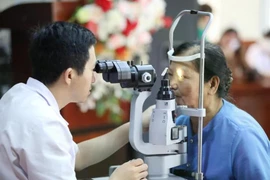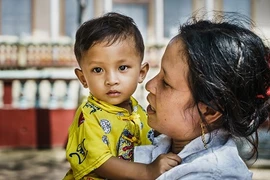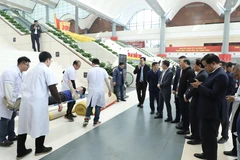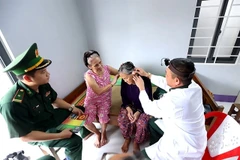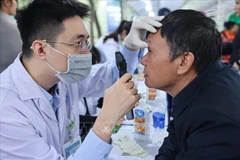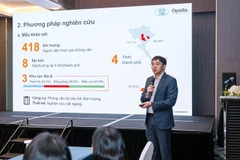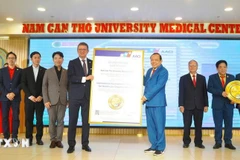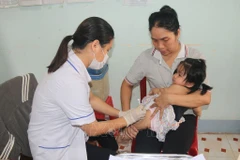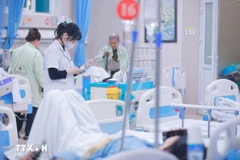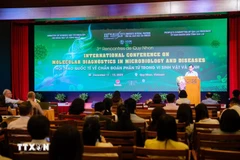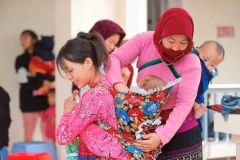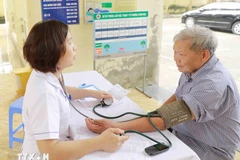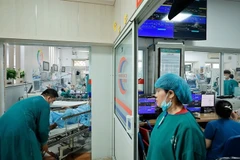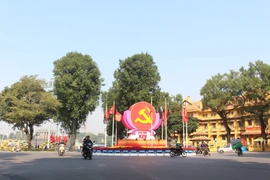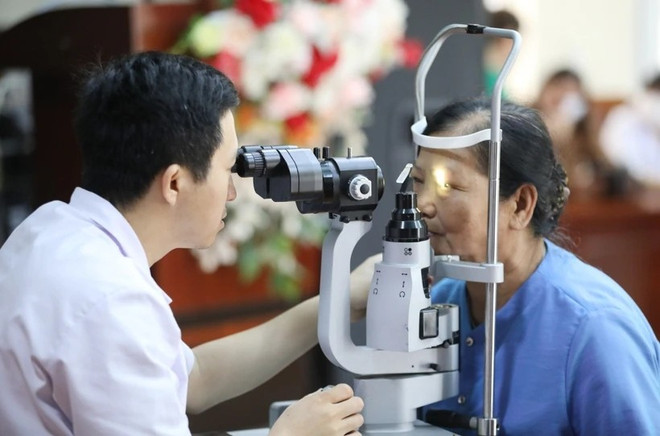
Hanoi (VNA) - The Ministry of Health held a ceremony on the afternoon of April 14 to officially announce that trachoma has been eliminated as a public health problem in Vietnam. This achievement follows over 70 years of determined efforts to treat and prevent this once widespread infectious eye disease.
Based on scientific assessments, the World Health Organisation (WHO) has officially recognised Vietnam for successfully eliminating trachoma nationwide. At the 75th session of the WHO Regional Committee for the Western Pacific, held in the Philippines on October 21, 2024, the WHO formally acknowledged and celebrated Vietnam’s achievement.
Deputy Minister of Health, Dr Tran Van Thuan, highlighted that trachoma has long posed a significant challenge for healthcare systems, particularly in countries with limited socio-economic development.
According to WHO data, by 2023, the global population at risk of trachoma had decreased by 7%, from 125 million in 2022 to approximately 115.7 million. Most of those at risk continue to live in areas where active trachoma prevalence remains at or above 5%, typically where sanitation and access to medical services are still poor.
Furthermore, the global burden of trachomatous trichiasis—the most severe complication of trachoma—has also declined, dropping from 1.7 million cases in 2022 to around 1.5 million in 2023.
These figures reflect encouraging progress in the global campaign against the disease.
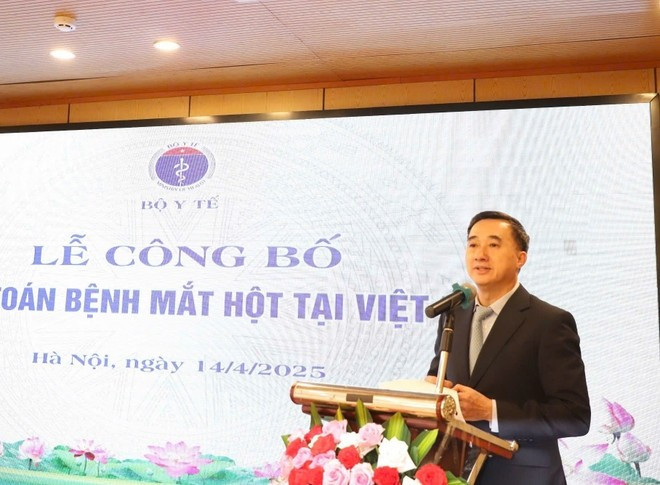
“To date, 21 countries have been officially recognised by the WHO for eliminating trachoma as a public health issue. We can be proud that Vietnam is now counted among them,” said Dr Thuan.
However, he stressed that this success should not lead to complacency. The focus now must be on maintaining this achievement sustainably. Relevant agencies should strengthen surveillance, early detection, and community-level case management. Public awareness on personal hygiene, environmental sanitation, and trachoma prevention must be further promoted. In addition, resources and financial mechanisms need to be secured to support continued efforts, including the provision of trichiasis surgery through the national health insurance system, in line with current regulations. Regular reporting to the National Eye Hospital and regulatory authorities must also be maintained.
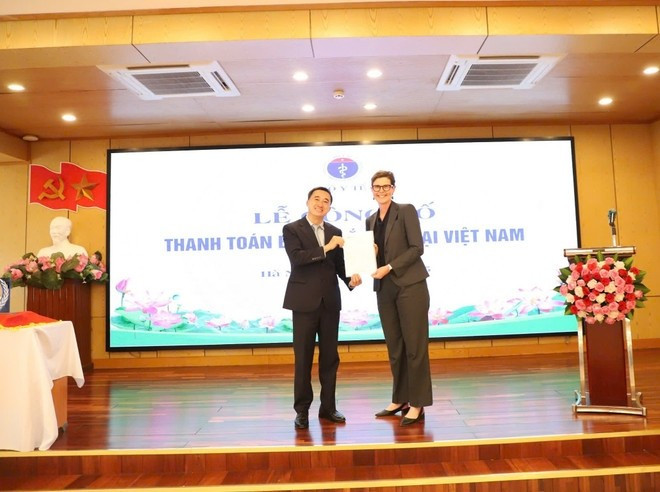
Dr Saia Ma'u Piukala, WHO Regional Director for the Western Pacific, praised Vietnam’s accomplishment as a testament to the strong commitment from the Government, healthcare professionals, and communities across the country. He described it as a powerful example of how targeted interventions, close partnerships, and tireless dedication can bring about real change in public health.
Dr Thuan extended heartfelt thanks to the WHO and international partners in Vietnam for their technical and financial support throughout the programme, especially in remote and underserved provinces. He also expressed deep appreciation for the dedication of health workers from national to grassroots level who worked tirelessly to overcome numerous challenges and fulfil their mission.
He also commended the National Eye Hospital for its role as the programme’s technical lead, from monitoring and training to data management and coordination with local authorities./.

